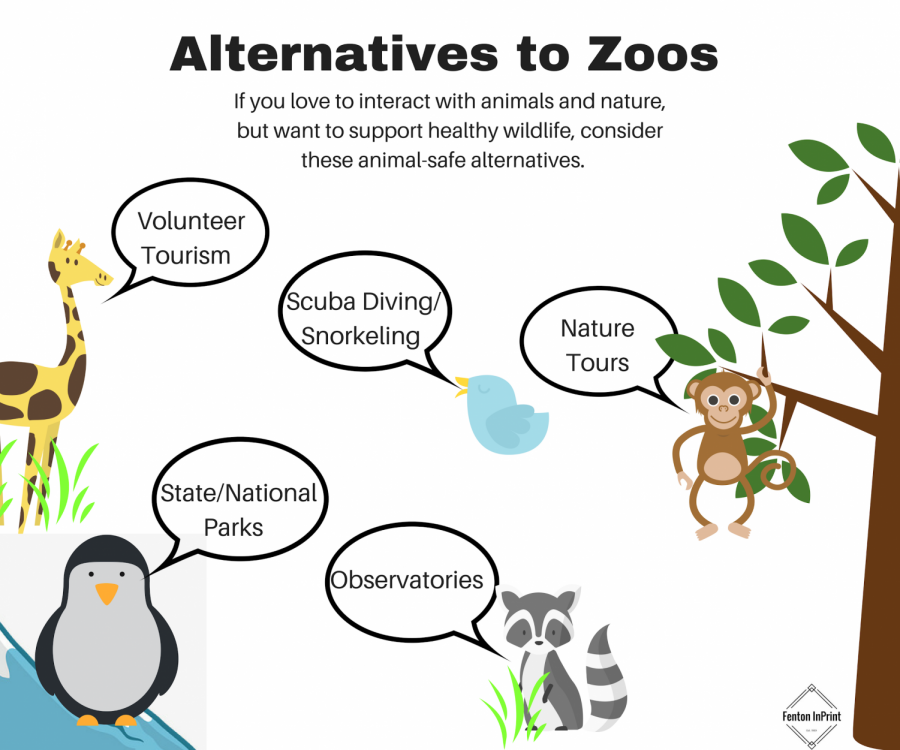Opinion: Zoos are detrimental to animal’s health
PHOTO Gracie Warda
August 1, 2018
One place that reeks of reminiscence for any american is the local zoo. With over 2,400 zoos nationwide, according to National Geographic, odds are that a given american has visited one in their lifetime. However, seldom does a passerby consider the health of the animals in that particular zoo.
Several different diseases, both physical and mental, threaten the life of any captive animal. Depression, Anxiety, infections, bone fractures, prevention of flight, starvation and lesser-known Zoochosis are among the dangers that captive animals face.
According to National Geographic, Zoochosis is a neurological disorder that plagues nearly 80 percent of zoo animals, and is characterized by symptoms of anxiety and depression in zoo animals.
A notable case of Zoochosis was demonstrated by Gus the polar bear in the Central Park Zoo. According to Slate’s Animal Blog, after swimming figure eights in his enclosure, sometimes for 12 hours a day, Gus, nicknamed the “bi-polar bear,” was put on Prozac (an antidepressant) and was treated to roughly $25,000 worth of behavioral therapy.
While this story had a much happier ending than most stories like it, the fact that an animal’s happiness could’ve been spared had he not lived in a zoo makes the story heartbreaking.
Those who believe that zoos are educational, especially for children, do not take into consideration research done on the topic. A study conducted by Conservation Biology estimated that less than 12 percent of students had a positive take-away from zoo trips.
Another counter-argument claims that zoos are meant to protect animals, and their efforts go towards conservation of endangered species. However, former zoo director David Hancocks estimated that less than three percent of a zoo’s income is put towards conservation efforts, proving that zoos do not prioritize animal well-being.
Additionally, breeding animals in captivity will not help the wildlife populations of those species. Even on the off chance that an animal bred by a zoo is released into the wild, that animal is not equipped with instincts required to survive. Consequently, it will not contribute to the species.
What many people fail to realize about zoos is that they are businesses. Like any other business, their main focus is profit; The animals in zoos are purely transactional. The concept of treating captive animals like products is proven by the People for Ethical Treatment of Animals (PETA), who said that “Zoos often trade, loan or sell adult animals who aren’t making them as much money as when they were younger.”
It is important to mention that not all zoos treat animals so cruelly. The Association of Zoos and Aquariums has about 232 zoos and aquariums that have been accredited. These zoos are held to high standards of operations, animal welfare and husbandry, and veterinary medicine in order to receive accreditation. For a full list of accredited zoos, click here.












dianna • Mar 9, 2023 at 10:46 AM
love this website and i am never going to a zoo ever again